Anti-Inflammatory Diet for Beginners
Heal the Immune System with Easy Recipes and 20-Day Meal Plan
Katie Salzmann
Table of Contents
Copyright 2021 by Katie Salzmann- All rights reserved.
The following Book is reproduced below with the goal of providing information that is as accurate and reliable as possible. Regardless, purchasing this Book can be seen as consent to the fact that both the publisher and the author of this book are in no way experts on the topics discussed within and that any recommendations or suggestions that are made herein are for entertainment purposes only. Professionals should be consulted as needed prior to undertaking any of the action endorsed herein.
This declaration is deemed fair and valid by both the American Bar Association and the Committee of Publishers Association and is legally binding throughout the United States.
Furthermore, the transmission, duplication, or reproduction of any of the following work including specific information will be considered an illegal act irrespective of if it is done electronically or in print. This extends to creating a secondary or tertiary copy of the work or a recorded copy and is only allowed with the express written consent from the Publisher. All additional right reserved.
The information in the following pages is broadly considered a truthful and accurate account of facts and as such, any inattention, use, or misuse of the information in question by the reader will render any resulting actions solely under their purview. There are no scenarios in which the publisher or the original author of this work can be in any fashion deemed liable for any hardship or damages that may befall them after undertaking information described herein.
Additionally, the information in the following pages is intended only for informational purposes and should thus be thought of as universal. As befitting its nature, it is presented without assurance regarding its prolonged validity or interim quality. Trademarks that are mentioned are done without written consent and can in no way be considered an endorsement from the trademark holder.
Introduction
Anti-inflammatory diets are very popular right now because there are many people that have inflammation due to their immune system attacking the body and causing damage. Inflammation can lead to illnesses such as arthritis, fibromyalgia, and even Alzheimer's disease. The anti-inflammatory diet for beginners is a great plan for those looking to feel better, live longer, and get relief from their chronic disease symptoms.
The goal of an anti-inflammatory diet is to eat foods that combat inflammation in your body. These foods are filled with antioxidants that will heal your cells and balance any excess hormones. These are great for people that have systemic inflammation. People with joint, skin, or bone issues may also benefit from this type of diet.
A pro-inflammatory diet has a higher amount of unhealthy foods like sugar and animal products that promote inflammation in the body. An anti-inflammatory diet is made up of healthier foods like fruits, vegetables, and fish. Stored fat is also considered an inflammatory agent so it is best to avoid traditional fats like butter and oils.
Different people could respond differently to different diets so it is important to consider your personal intolerance level when choosing which diet will work best for you. There are plenty of anti-inflammatory diets available but the ones to be explored here are the Mediterranean diet, macrobiotic diet, and Ayurvedic diet.
Anti-inflammatory diets have a lot to offer for people that are suffering from chronic inflammation. This type of diet is not necessarily for weight loss although it can help you with your weight loss goals if you include healthy fats in your diet. These diets can be costly if they incorporate exotic foods so you might need to adjust it to fit your budget and make it work within your lifestyle.
The best way to find out which one works for you is to try them out for yourself and then see how you feel after a couple weeks on each one.
How much should I eat?
It is essential to note that anti-inflammatory diets require a lot more food than a "normal" diet does. Your meals need to be big and there aren't any snacks in this program. This is really crucial because if your body is not getting enough fuel it will start using its own fat supply as an energy source instead of burning fat from the foods you are eating. This can lead to very unhealthy weight gain if you don't adjust your diet to reflect this fact. Eating too much will also make difficult for your body to store fat because there isn't any room for it, so many people end up with excess water weight which doesn't do anything positive for the body.
What foods are safe?
There is a huge variety of foods in the anti-inflammatory diet that all have very beneficial effects on your body. Eating natural, organic fruits and vegetables is important because they are filled with antioxidants and nutrients that can help you heal from inflammation. Lean meats like chicken, turkey breast, and fish can be included in meals to give your body a good source of protein if you are following the plan for weight loss. Poultry has been shown to help reduce joint pain while fish offers benefits for eye health. Non-starchy vegetables such as leafy greens like kale, Swiss chard, spinach and collard greens also have beneficial effects on health and should be eaten on a daily basis. Whole grains like brown rice, quinoa and wheat berries can be great for weight loss because they are high in fiber and complex carbs.
There are also some vegetables and fruits with natural anti-inflammatory properties, such as:
Ginger: ginger has been used for centuries by Asian communities as a natural cure for all sorts of health issues. Studies have shown that this root can help with arthritic pain. It should not replace traditional medications but it is very beneficial to add to your diet if you experience pain from inflammation. Ginger tea, ginger cookies or any other culinary creation easily adds ginger into your daily dietary intake.
garlic: garlic is another culinary staple for good reason. Studies have shown that those persons who eat garlic have a lower risk of heart disease, lower cholesterol, and are less likely to develop cancer cells. It is especially good for skin health since it is known to control acne and eliminate all signs of inflammation in the body. The best way to enjoy garlic would be in a gourmet meal or simply sauted with olive oil as part of your vegetable intake.
lemon juice: lemon juice has been used as a natural cleanser and disinfectant for years because of its antibacterial properties. Lemon juice can also help cure respiratory problems such as coughing by adding healing properties to the mucus membranes. This is most beneficial for people with chronic respiratory issues. Adding lemon juice to a meal can help your body absorb all of the nutrients from your food.
monk fish: monk fish is a type of fish that is consumed in Southeast Asian cultures. It has been shown to reduce joint pain and inflammation, and also helps eliminate cancerous cells. The oil in monk fish helps reduce inflammation by preventing the body from breaking down healthy tissue and replacing it with dead tissue.
Chapter 1.
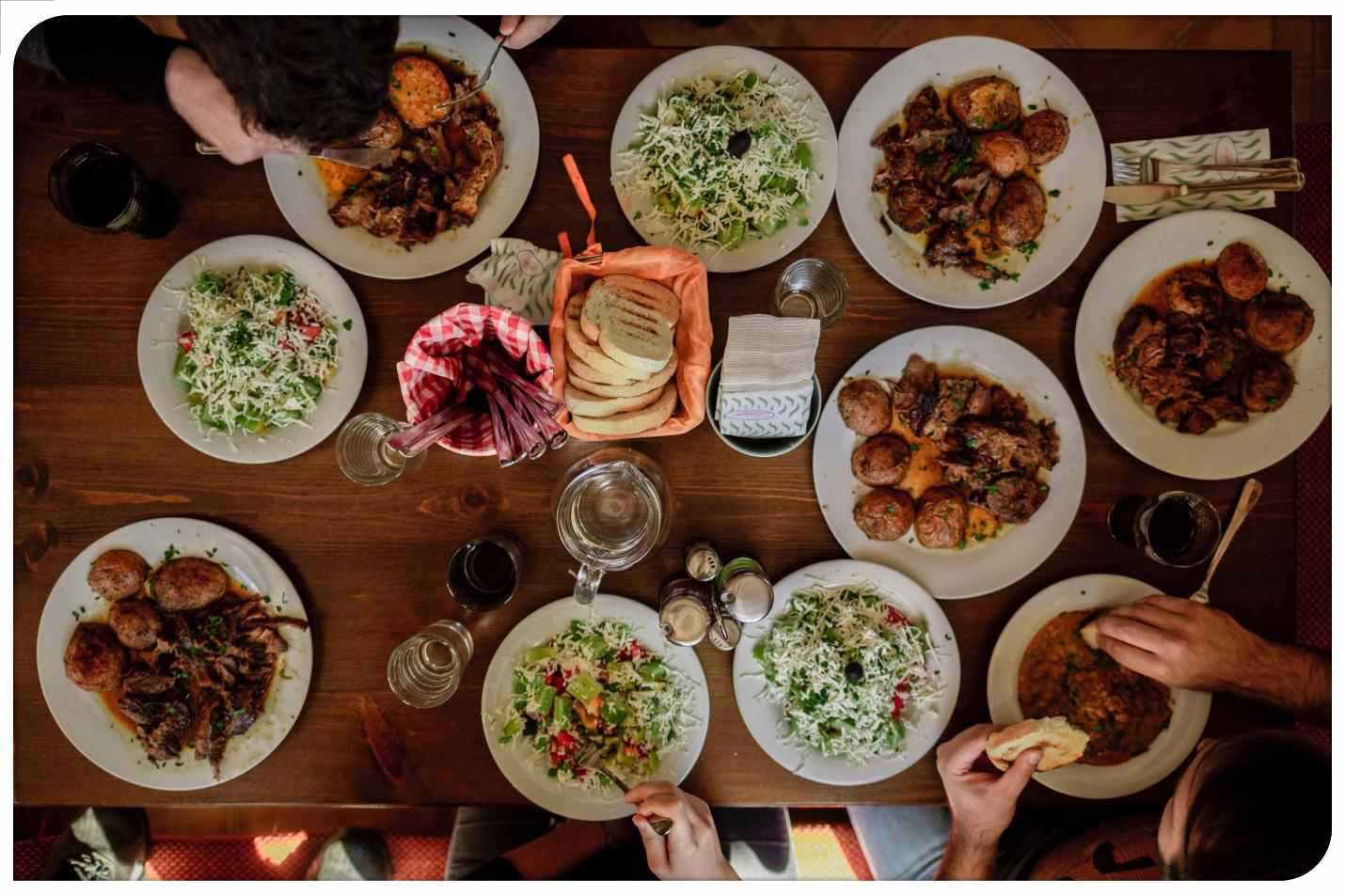
The Anti-Inflammatory Diet
The anti-inflammatory diet isnt a one size fits all approach but is more a set of guidelines that you can apply to what you eat. In general, a diet filled with a wide range of plant-based foods, whole grains, lean proteins, and good fats will decrease inflammation but also prevent any future flare-ups.


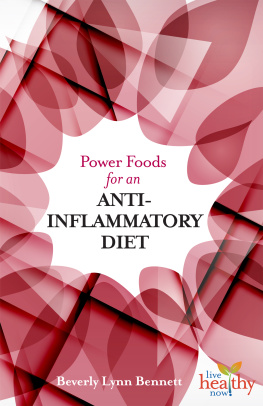
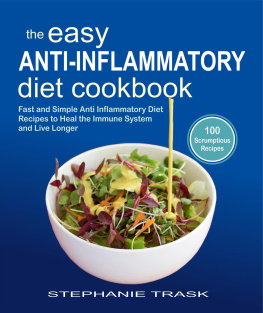
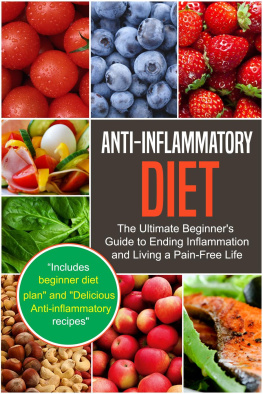
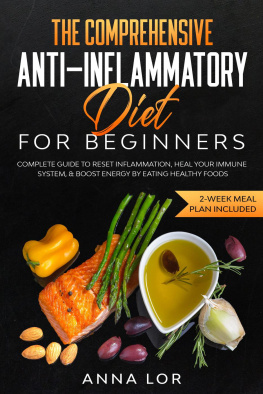
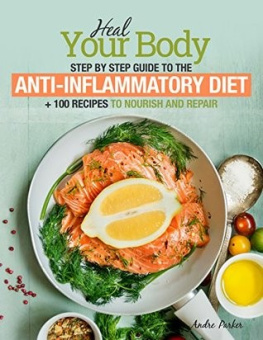
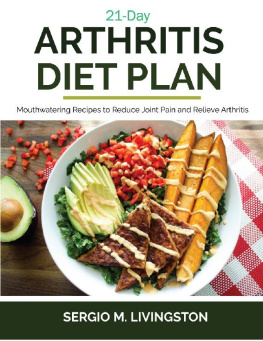


 The Anti-Inflammatory Diet
The Anti-Inflammatory Diet